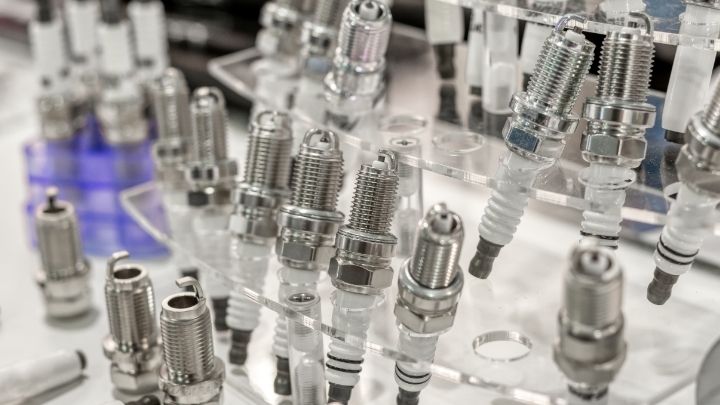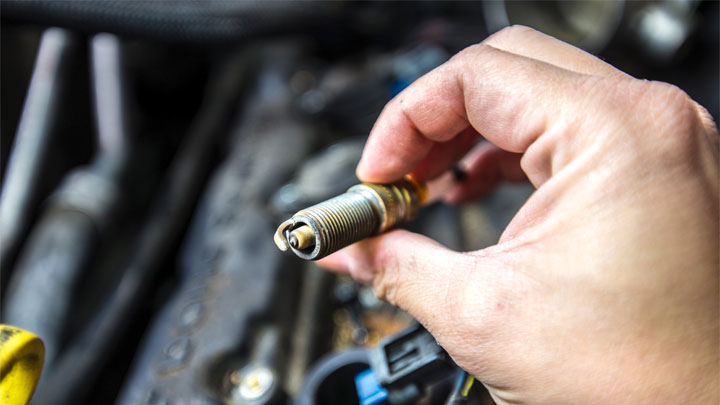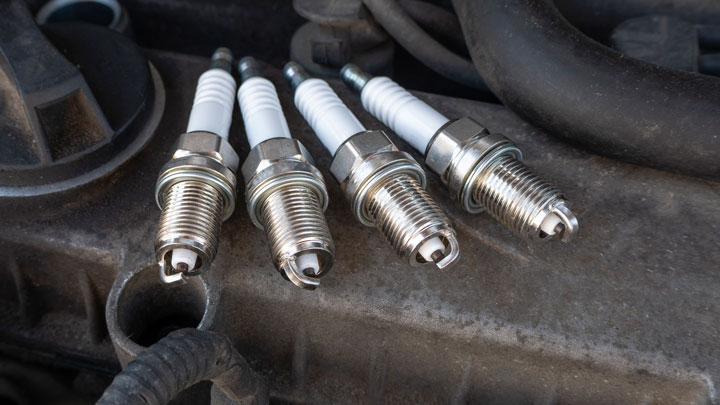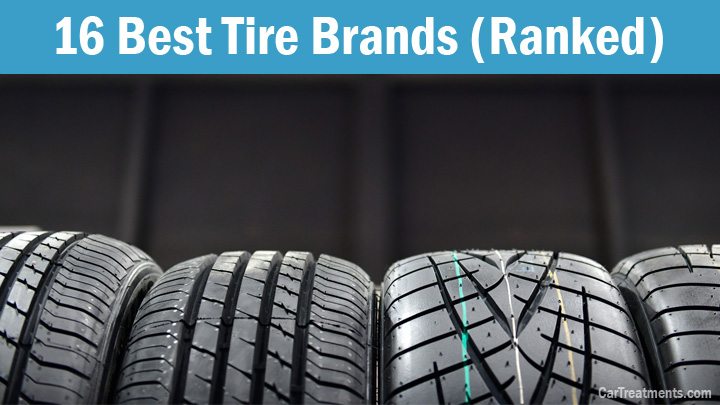Last Updated on January 25, 2022
You might think that all spark plugs are the same. After all, the general purpose of a spark plug is to generate an electric current for igniting the compressed air and fuel in the combustion chamber.
However, there are some differences when it comes to spark plugs. Certain ones are more efficient and perform better than others. It all depends on what type of spark plugs your vehicle’s manufacturer recommends.
All spark plugs have a central electrode and a side electrode. These electrodes were traditionally made of copper but now they are being manufactured from materials like iridium and platinum.
Also, the center electrodes are being made much smaller than they used to be. This means that less voltage will be required to generate the electric current for the combustion chamber.
Overall, you will find the four main types of spark plugs are copper spark plugs, iridium spark plugs, platinum spark plugs, and double platinum spark plugs.
Some have better uses than others, depending on the vehicle that you’re driving. Below you will find more details on these spark plugs when it comes time to replace them.
Related: Best Spark Plugs for Gas Mileage and Performance
Copper Spark Plugs

This spark plug is mostly made from solid copper. Its central electrode is made from nickel alloy and it has the largest diameter of all the other spark plugs. This means it’ll need more voltage to generate an electric current.
Nickel alloy is a material that is soft and not very durable. This means it won’t last long. It is best to use copper spark plugs in older vehicles which didn’t have high electrical needs.
- Pros – Better for older vehicles built before 1980.
- Cons – They don’t last as long; Requires more voltage.
Iridium Spark Plugs

Iridium spark plugs will last the longest. Iridium is a metal that is harder and more durable than platinum. Although you will have to pay more money for iridium spark plugs, you will get what you pay for.
These spark plugs have a small center electrode which means they use less voltage to generate the electric current. That is why many car manufacturers are starting to recommend iridium spark plugs for their vehicles.
If you already have these spark plugs installed and you need new ones, do not downgrade to platinum or copper because they will diminish the performance of your vehicle.
- Pros – Harder than platinum; Lasts the Longest; Uses Less Voltage
- Cons – Expensive
Platinum Spark Plugs

A platinum spark plug is similar to a copper spark plug, except that its center electrode has a platinum disc which is welded to its tip area. The copper spark plug only has nickel alloy material in this area.
As a result, the platinum spark plug is more durable and can last as many as 100,000 miles.
These plugs also generate more heat, which means that debris buildup will be reduced. If you have a new car with an electronic distributor ignition system, platinum spark plugs are recommended.
- Pros – Lasts longer than copper; Reduces debris buildup
- Cons – Not the strongest spark plug on the market
Read also: 5 Symptoms of a Bad Brake Pads and Need to Change Immediately
Double Platinum Spark Plugs

If your distributor ignition system is a waste spark system, then double platinum spark plugs are recommended. This system causes the spark plugs to fire twice, once in the compression stroke’s cylinder and the other in the exhaust stroke’s cylinder.
The spark for the latter gets wasted because there is no ignition there. The benefit of the waste spark system is that it is more reliable and isn’t affected by environmental conditions such as rain or dampness.
- Pros – Recommended for Waste Spark Systems; Reliable
- Cons – Not recommended for electronic DIS





Does the spark plug gap change when using copper, platinum or iridium.
Spark plug gap will widen over time especially in standard copper plugs. But precious metals like platinum and iridium are much harder so any wear down (which causes a gap increase) will be incredibly slow.
what makes the car lose power when accelarete
See: http://cartreatments.com/car-wont-accelerate-symptoms-and-reasons/
I put in iridium tipped NKG izfr5k11 plugs in my 2005 Honda Pilot.
These are for 2006-08. opps. Honda direct oem matched these plugs for my 05.
The recommended plug is platinum ngk zfr5fgp, which is what came out.
That is why I ended up here.
Just checking. The gap difference is .040-platinum vs .044-iridium
I think I’m fine. your opinion?
In ancient times we used steel tipped spark plugs (at least we always called them such). We are talking Champion and Delco and Autolite, all-American plugs that lasted maybe 6000 miles before performance drop off, very common in the days of the 6k tune up interval for ANY stone ax era points-fired car. They were so-so, though when the Champion extended tip “Y” series appeared, as in J12Y for my old 60’s Pontiacs, they seemed to make a real difference, putting the spark closer to the center of the chamber a few MM and I noted better gas mileage… 5-10% on my delivery routes. Most plugs these days are extended tip and exceed our “stone knives and bear skins” era performance.
Then I got my 1970’s UJM (Universal Japanese Motorcycle) and found a more modern type that worked really well, like the Nippon Denso U-groves. The U-grove plugs are still the best for my ancient 1978 Yamaha XS-650SE motorcycle (which I discovered a ways back are a copper core design). Nothing comes close for solid performance and cold start ease and I didn’t mind swapping them every 10-12k. That was what you did then (and 10k was a lot more than 6k after all). From that experience I switched from my American plugs and have enjoyed using them in all my old machines, even lawn mowers, for decades.
My modern cars have all OEM specced for Platinum and Iridium’s. The Iridium’s are definitely better of the two, but vs old-school copper… don’t know. Never tried them in new cars. I now discover they might be a better choice for us old wrenchers who care about every mile being “righteous” and love to get our hands dirty blacksmithing our rides. My modern rides will give them a trial vs their OEM spec. Maybe get back to you if I can remember to. ;^D
That is very interesting. Thanks for sharing!
Please recommend correct spark plug to be used for (Nissan Pathfinder) Jeep. 2006 model.
You should be able to find this information in a factory service or repair manual, or at your local auto parts store.
if the double platinum plugs is good for 60 to 100 thousand miles……….
Why does Volkswagen show a 40,000 mile spark plug change in the owners manual?
Plugs last a different amount of time depending on the vehicle and how it’s driven. Always defer to your owner’s manual for maintenance intervals.
Sean, that is the classic – “err on the side of caution” reply……
Can’t go wrong there.
What about using the hard starting, fuel economy and misfire symptomology approach to this question?
Sounds like you’ve answered your own question, Fred. If your fuel economy suffers and you start having hard starts, stumbling, or misfires, it’s probably time to change the plugs.
I drive a 2017 Jetta GLI Autobahn and want better performance from my engine, Will going to Copper Spark Plugs over Iridium or platinum provide BETTER Engine Performance even though they will not last but around 50,000 ?? Not concerned about cost, but performance. Heard that high end Audi, Porsche, and BMW use Copper ‽
Unlikely. Spark plug choice won’t give you any extra power unless you were already down on power from using old plugs.